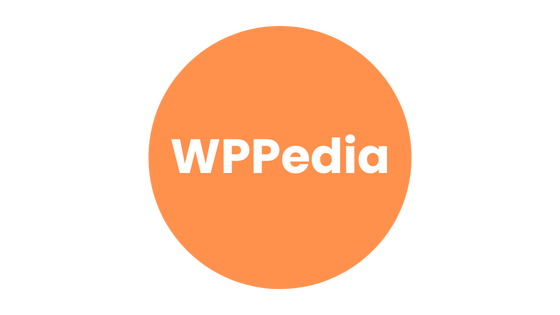In this guide, we’re not just skimming the surface. Whether you’re a seasoned developer, an aspiring blogger, or a curious entrepreneur, this article is your compass.
1. What is WordPress? Understanding the Basics
WordPress, at its core, is a Content Management System (CMS) – a tool that helps you create, manage, and modify content on a website without needing to interact directly with code. But to call WordPress just a CMS would be an understatement. It’s a versatile platform that powers an astonishing range of websites, from small personal blogs to large corporate portals and online stores.
What sets WordPress apart is its open-source nature. This means that it’s built and maintained by a community of contributors. Anyone can use, modify, and distribute it. This collaborative approach has led to its widespread adoption, making WordPress the backbone of over 40% of all websites on the internet.
The true beauty of WordPress lies in its versatility. It’s a chameleon in the digital world, adapting to various needs – be it a photographer’s portfolio, a news outlet, or an online marketplace. This adaptability is due to its extensive range of themes and plugins, allowing users to tailor their sites to their specific needs.
2. Getting Started with WordPress
Embarking on your WordPress journey begins with two fundamental steps: selecting a domain name and choosing a hosting service. Your domain name is your digital address, a unique identifier that represents your website’s identity. It’s crucial to choose a name that’s not only memorable but also reflective of your brand or purpose.
Next up is hosting. This is where your WordPress site will live on the internet. There are numerous hosting providers, each offering different plans and features. It’s essential to select a host that is reliable, fast, and, ideally, offers one-click WordPress installation to simplify the process.
Once you’ve secured your domain and hosting, installing WordPress is the next milestone. Most hosting providers offer easy WordPress installation tools. With just a few clicks, you can have your WordPress site up and running.
3. WordPress Features
WordPress is renowned for its rich array of features, catering to users of all skill levels. At the heart of its functionality are themes and plugins. Themes dictate the visual appearance of your site, while plugins extend its capabilities, adding functionalities like contact forms, SEO tools, and e-commerce solutions.
Speaking of SEO, WordPress is designed with search engine optimization in mind. Its features and plugins help ensure that your content ranks well on search engines, driving more traffic to your site. Additionally, WordPress is known for its user-friendly interface, making it accessible to beginners while still offering advanced features for seasoned developers.
Another standout feature is its flexibility. Whether you’re running a personal blog, a business website, or an online store, WordPress can be tailored to meet your specific needs. This adaptability, combined with its ease of use, makes WordPress a preferred choice for web developers and content creators worldwide.
4. Customization
The real power of WordPress lies in its customizability, primarily through themes and plugins. Themes control the visual aesthetics of your site, while plugins add functionality and features. The WordPress theme directory offers a plethora of options, ranging from simple, clean designs to complex, feature-rich themes. When choosing a theme, consider not just the look but also its responsiveness, speed, and compatibility with different browsers. ThemeForest is a popular destination for a wide variety of themes.
Plugins, on the other hand, are about adding new capabilities to your WordPress site. From SEO optimization with plugins like Yoast SEO, to enhancing user engagement with tools like Jetpack, the possibilities are endless. For e-commerce, WooCommerce is the go-to plugin, transforming your site into a fully functional online store. It’s crucial to choose plugins that are regularly updated and have good support.
5. Blogging and E-commerce
WordPress began as a blogging platform but has evolved into a versatile tool suitable for all kinds of websites, including e-commerce. For bloggers, WordPress offers an intuitive and flexible platform. Themes like Astra and Genesis Framework provide beautiful, customizable designs perfect for storytelling and content presentation.
For e-commerce, WordPress seamlessly integrates with WooCommerce, a powerful plugin that turns your site into a sales powerhouse. WooCommerce offers extensive features like inventory management, secure payments, and shipping integration. Themes specifically designed for WooCommerce, such as Storefront, enhance the shopping experience with their optimized design and functionality. Stand out with Some tactics of WordPress Monetization for Turning Your Blog into a Profitable Business.
6. Security and Performance
Security and performance are paramount for any WordPress site. Common security concerns include unauthorized access, malware, and data breaches. To combat these, robust security plugins like Wordfence and Sucuri offer firewall protection, malware scanning, and more. Regularly updating WordPress, themes, and plugins is also crucial for security.
Performance-wise, a fast-loading website provides a better user experience and is favored by search engines. Caching plugins like W3 Total Cache and WP Rocket can significantly improve site speed. Additionally, optimizing images with tools like Smush and using a Content Delivery Network (CDN) can further enhance performance.
7. WordPress Community and Support
One of WordPress’s greatest assets is its vibrant community, a global network of users, developers, and enthusiasts. This community is a treasure trove of knowledge, offering extensive support resources. The WordPress Support Forums are a hub where you can ask questions and share insights. For official documentation, the WordPress Codex provides detailed guides and tutorials.
Beyond online resources, WordPress’s community is brought to life through events like WordCamps, local and international conferences where users and developers gather to learn and network. These events are instrumental in fostering a sense of community and collaboration. Whether you’re troubleshooting a technical issue or seeking advice on best practices, the WordPress community is an invaluable resource.
8. Future Updates and Scalability
Keeping your WordPress site updated is crucial for security, performance, and accessing new features. Regular updates protect your site from vulnerabilities and ensure compatibility with the latest web technologies. WordPress’s update system is streamlined, making it easy to maintain your site’s health.
Scalability is another key aspect of WordPress. As your website grows, WordPress grows with you. Whether you’re expanding your content, increasing traffic, or adding e-commerce functionality, WordPress’s flexible architecture can handle it. This scalability ensures that WordPress is a long-term solution for your web development needs, adaptable to changing requirements and expanding scopes.
9. Conclusion
Throughout this article, we’ve navigated the multifaceted world of WordPress, from its basics as a CMS to its robust features, customization options, and the supportive community surrounding it. WordPress stands out for its flexibility, user-friendliness, and scalability, making it an ideal platform for websites of all types and sizes.
Whether you’re launching a personal blog, a bustling e-commerce site, or a corporate portal, WordPress offers the tools and resources to build and grow your digital presence effectively. Its commitment to continuous improvement and a global community of support further cements its position as a top choice in web development. Embracing WordPress means joining a world of endless possibilities, where your website can evolve and thrive in the ever-changing digital landscape.
10. FAQ Section
Q: How long will it take to learn WordPress?
The time it takes to learn WordPress varies based on individual skill levels and dedication. Generally, a basic understanding can be achieved in a few weeks, while mastering WordPress might take a few months.
Q: What are the disadvantages of using WordPress?
Some disadvantages of WordPress include potential security vulnerabilities if not regularly updated, a learning curve for beginners, and occasional performance issues with too many plugins or a poor hosting environment.
Q: Can I learn WordPress on my own?
Yes, you can learn WordPress on your own. There are numerous online resources, tutorials, and communities available to help self-learners. Here are some best ways to learn WordPress for beginners.
Q: Can a beginner make a WordPress website?
Absolutely, a beginner can create a WordPress website. WordPress is designed to be user-friendly with a gentle learning curve, making it accessible for beginners to build and manage their own websites.


